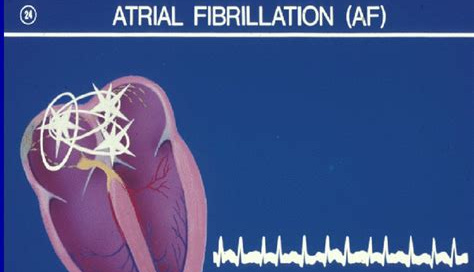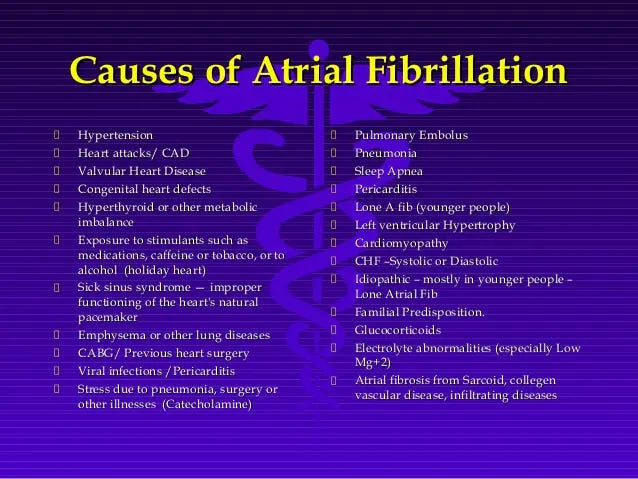It’s Labor Day weekend in the USA and celebrations are busting out all over. Lots of pent up partying to be released. But I need to caution my readers …
Holiday Heart syndrome is a real thing.
That rapid pulse, chest pain and dyspnea could be due to atrial fibrillation. Occurring more often these days.
Standard of Medicine dogma teaches these causes:
But they are not the most common causes.
Sorry to be a Debbie Downer here but … commonly used ‘pain killer’ substances are the real culprits.
Imbibing Spirits
Yes, just one drink of alcohol can immediately set off an aberrant heart rhythm. And there is a dose dependence to the effect. More is not better.
A recent study used prospective, case-crossover analysis with 100 participants having established AF, recruited from a cardio clinic, not the general population. For 4 weeks, they wore continuous electrocardiogram (ECG) monitor and a transdermal ethanol sensor and reported each alcoholic drink consumed using a button on the ECG device.
Results: an episode of AF had 2-fold higher odds of 1 preceding alcoholic drink and greater than 3-fold higher odds of at least 2 drinks. Episodes of AF were also associated with higher odds of peak blood alcohol concentration and the total area under the curve of alcohol exposure.
Non Steroidal Anti Inflammatory Drugs NSAIDs
So alcohol is knocked out of the compendium for pain meds. What about grabbing an Advil to treat your sore muscles from that vigorous softball game with the grandkids at the picnic?
Nope. Nix that too.
A Dutch study examined 8423 participants without atrial fibrillation at baseline, to determine if the risk of atrial fibrillation was higher among individuals ages 55 and older using nonsteroidal anti-inflammatory drugs (NSAIDs). During a mean follow-up of 12.9 years, 857 participants developed atrial fibrillation.
Current use of NSAIDs for 15 to 30 days was associated with a relative 76% greater risk of the arrhythmia compared with not using the drugs at any point during the study period (HR 1.76, 95% CI 1.07-2.88),
The higher risk remained even when NSAIDs were not used currently but had been in the prior 30 days (HR 1.84, 95% CI 1.34-2.51), -Bruno Stricker, MB, PhD.
So instead… hydrate with a tall cool glass of EmergenC. It is a packet of essential salts, minerals and vitamins - especially vitamins C and B. Most importantly, it contains magnesium … because low Mg is yet another trigger for afib!
Do enjoy your holiday, despite it all. We all deserve it after enduring and surviving these past grueling 18 months.
REFERENCES
GM. Marcus, et al. Acute Consumption of Alcohol and Discrete Atrial Fibrillation Events https://doi.org/10.7326/M21-022
Krijthe BP et al. Non-steroidal anti-inflammatory drugs and the risk of atrial fibrillation: a population-based follow-up study. BMJOpen2014;4:e004059. doi:10.1136/bmjopen-2013-004059 https://bmjopen.bmj.com/content/bmjopen/4/4/e004059.full.pdf
https://www.emergenc.com/our-ingredients/#electrolytes
Please subscribe to my free newsletter by clicking the button. Many future stories will be exclusive to only paid subscribers to BioMedWorks Newsletter: the PREMIUM CONTENT. I would be grateful if you do go on to upgrade to the paid subscription for just $5 a month or $50 a year.







